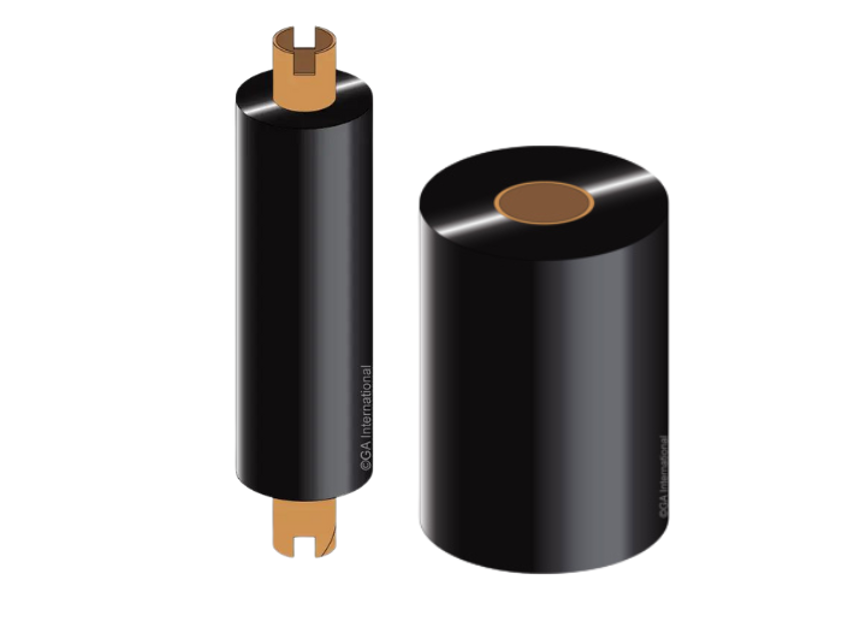The ultimate in chemical resistant labels.
Xylene labels are waterproof chemical solvent-resistant labels comprising a special adhesive that can withstand immersing into xylene, toluene, alcohol, formalin, fixatives and other histological stains and solvents.
They can be used for standard histology and cytology procedures including through protocols of fixing tissue sections in ice-cold ethanol (ethanol-dry ice bath at -78°C), boiling water, baking in oven (+130°C), PBS, histo-stains, microwave.
The labels can be printed in standard brands of thermal-transfer printers using our xylene-resistant ribbons which will ensure a solvent-resistant impressions and print durability. The ink and the labels will resist to direct exposures to harsh organic solvents.
The glossy surface prevents accumulation of colour residues from histostains such as haematoxylin, eosin and others.
PMSS xylene-proof labels are ideal for using on microscope slide, tissue cassettes and other specimen storage containers which might be exposed to histological staining and for other histo-pathological procedures in surgical pathology laboratories, histology, cytology, immunology, histo-immunology, forensic pathology, histo-pathology, chemistry labs (e.g. analytical, organic), and teaching laboratories at educational institutions and other research and clinical labs. These labels can be used for pathology specimen accession using anatomic pathology laboratory information systems. Labels can also be used in other fields where labels and the printed ink must endure strong organic solvents such as Acetone, Thinner, Break Fluid,Xylene, Toluene, Ethanol, Isopropanol (IPA), Dimethyl Sulfoxide (DMSO), Acrylonitrile (ACN), Methyl Ethyl Ketone (MEK).
Having been specifically designed and tested to withstand the strong chemicals and rigorous procedures which are used in these laboratories, and have extra strong permanent adhesive for attaching to glass and plastic surfaces. For example, depending on the staining procedure, the chemical fixatives used to fix cells and tissues onto microscope slides may include soaking in baths containing aqueous solutions (e.g. water, saline), alcohols (e.g. ethanol, methanol, isopropanol), aldehydes (e.g. formaldehyde, glytaraldehyde), ketones (e.g. acetone). The tissue dehydration process uses a series of different incubations with different alcohol mixtures, The tissue staining procedure involves staining and counterstaining with dyes, interspersed with washing and/or shaking with different water:alcohol mixtures to remove excess dyes. The tissue clearing process which clarifies the tissue after paraffin embedding uses xylene or toluene. Other tissue processing methods may use additional strong chemicals such as dimethyl sulfoxide (DMSO), hexane, isopentane, methyl ethyl ketone (MEK), and acrylonitrile (ACN). Xylene labels ensure that your important specimens remain securely identified throughout all of these harsh chemical procedures, as well as for many years after processing, during long-term storage.
Durability / Chemical Resistance
The PMSS Xylene labels are permanent plastic labels that have been developed specifically for use in laboratories where strong chemical solvents are used, such as medical and forensic labs (e.g. cytology, histology, immunology, pathology, forensic pathology), chemistry labs (e.g. analytical, organic), and teaching laboratories at educational institutions. These labels have been specifically designed and tested to withstand the strong chemicals and rigorous procedures which are used in these laboratories, and have extra strong permanent adhesive for attaching to glass and plastic surfaces. For example, depending on the staining procedure, the chemical fixatives used to fix cells and tissues onto microscope slides may include soaking in baths containing aqueous solutions (e.g. water, saline), alcohols (e.g. ethanol, methanol, isopropanol), aldehydes (e.g. formaldehyde, glytaraldehyde), ketones (e.g. acetone). The tissue dehydration process uses a series of different incubations with different alcohol mixtures, The tissue staining procedure involves staining and counterstaining with dyes, interspersed with washing and/or shaking with different water:alcohol mixtures to remove excess dyes. The tissue clearing process which clarifies the tissue after paraffin embedding uses xylene or toluene. Other tissue processing methods may use additional strong chemicals such as dimethyl sulfoxide (DMSO), hexane, isopentane, methyl ethyl ketone (MEK), and acrylonitrile (ACN). Xylene labels ensure that your important specimens remain securely identified throughout all of these harsh chemical procedures, as well as for many years after processing, during long-term storage.
